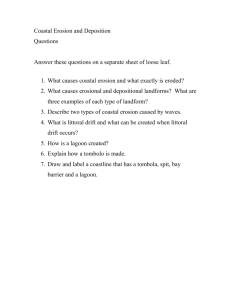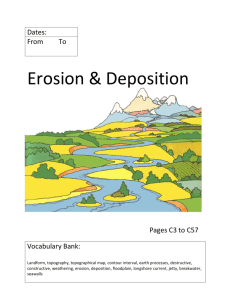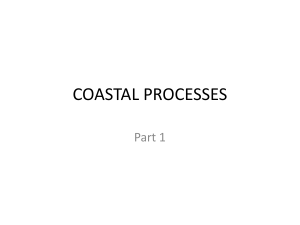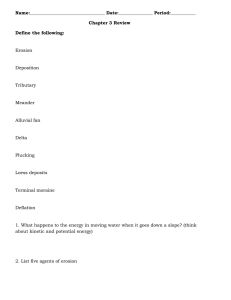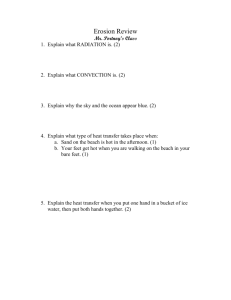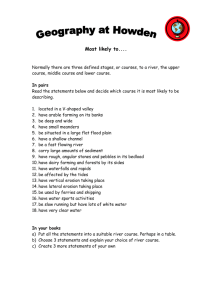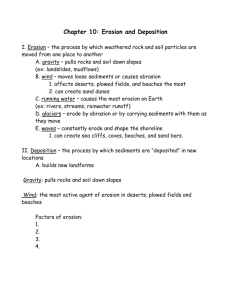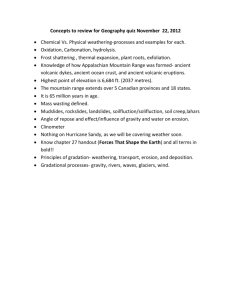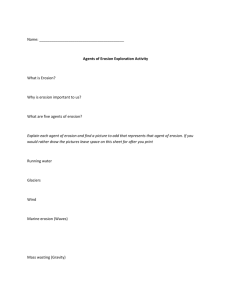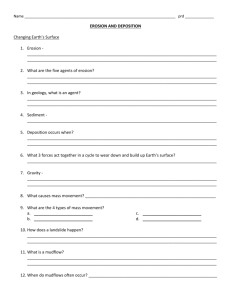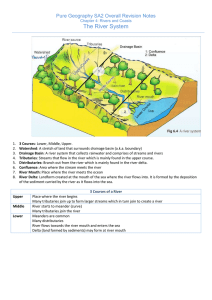Wave Cut Notch
advertisement
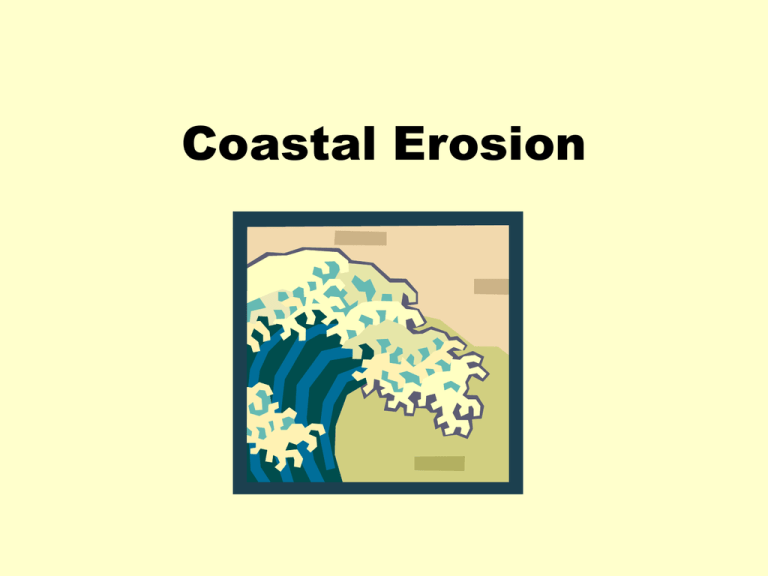
Coastal Erosion Forces That Shape The Earth • The Earth is shaped by both internal and external processes • Internally, tectonic processes form the lithosphere • Externally gradational processes also shape the lithosphere • These include: rivers, winds, glaciers, and waves Rivers • Rivers cut deep valleys and create large deltas Winds • Winds carves beautiful rock formations and carry sands Glaciers • Glaciers flow over continents while slowly carving out the land and dropping large boulders… Waves • Waves and currents cut into coastlines and polish sandy beaches…. The Other Gradational Force… • Humans are a gradational force • This picture is an example of the effects of over forestation Coastal Erosion • The constant battering of the waves (14,000 waves per day) • Effects: – erode the shoreline – transport the eroded material – deposit the eroded material elsewhere Factors Affecting Coastal Erosion • Softer rocks are more easily eroded • Sea floors that slope gradually have less erosion because wave break offshore • Coastlines oriented perpendicular to prevailing winds erode more easily • Rising sea levels increase erosion rates. Signs of Coastal Erosion • Wave-cut notches: An indentation cut into a sea cliff at water level by wave • Sea caves: cave formed primarily by the wave action of the sea • Sea arches: form where cliffs are subject to erosion from the sea • Sea stacks: steep and often vertical column of rock in the sea near a coast, isolated by erosion Wave Cut Notch Sea Arches, Caves, Stacks Sea Arches and Sea Stacks Elephant Rock, PEI Hopewell Rocks, NB Preventing Coastal Erosion • Riprap – a heap of angular boulders piled along the shoreline • Breakwater – a wall of boulders built parallel to the shore to take the brunt of the breaking waves Rip Rap Breakwater
